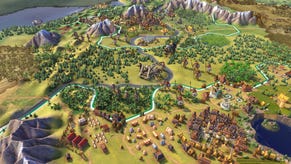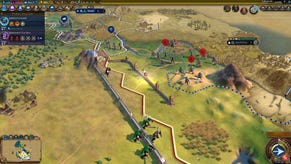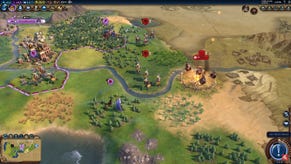The Power Of Positivity
A kindness of critics
I'm a positive person. In life, I tend to find a bright side even if I'm lost in the dark, and I look for the best in people even if they're concealing their best incredibly well. As a games critic, I tend to think of myself as harsh though, because analysing the best qualities of a thing often means finding all the fine points that fail to work along the way. Despite that, looking back at my reviews over the last couple of years, I can't help but notice that I appear to like games. Quite a lot actually. I am almost always positive about the games I play and I figure it's worth explaining why that is.
First of all, some of this probably does go back to my personality type. I can recognise a dud when I see it and if you get me talking about a game that I love dearly - most recently Civilization VI - you're as likely to hear about ten things that I didn't like, or felt could be improved, than you are to hear a gushing paean. When writing a review, there's a balancing act though. It's important to point out flaws, but it's vital to make it clear when a game has managed to pull off something exciting. That might be, as with Civ VI, a case of building intelligently on an age-old design, or it might be a case of doing something surprising, startling and unexpectedly brilliant.
There are many reasons I don't like the idea of writing a review as a buyer's guide (it's a boring approach, being the top reason) and the idea that spending more time on positives than negatives might mean a game is a Must Buy is one of them. Writing that certain things work well while others don't isn't a case of balancing the good against the bad. That's not how criticism works and it's certainly not how games work. That's why it was important for me, with Civ VI, to be clear not just about what the game does well and what it does badly, but to explain what it's actually trying to do. If you're more interested in a thematic trip through history than a competitive strategy game, you're better off looking elsewhere. All of Civ VI's good qualities aren't going to make it a fascinating alt-history simulator (you know where to look for that, right?).
I'm much more likely to dislike a game because I don't appreciate what it's doing than because it's actually doing that thing badly. In those cases, I'll often pass on a review. That's probably the main reason I tend to write such positive reviews - if I don't like a game, unless I think you're all excited about it, I'm not all that eager to write about it. If I feel it's necessary to warn people that a hotly anticipated game might be rubbish, or might not be quite what people expect, it's important to address that, particularly if my own excitement about that game might have put it on peoples' radar in the first place. But if I decide to look at something that the majority of people are never going to hear about unless I tell them about it, I'm probably not going to spend hours playing it for a review if the first hour is miserable. I play so many games that if I wrote about all of them in any detail at all, I wouldn't have time to sleep. Sifting through and finding the good stuff is more important to me than highlighting every bit of rubbish I find when I'm digging through Steam or TIGSource.
In short, I'm unlikely to draw attention to something simply to tell people how bad it is. If attention has already been drawn to it - by marketing, through its name or by the media (ourselves included) - I'll deliver as damning a verdict as required.
But on the whole, I write positive reviews. It's not because I'm soft or too generous, it's because I select the games that I spend time with carefully. They're things that I'm either personally excited about and that I know many of you will be if you hear about them, or that are big releases that fall within my particular areas of interest. Those areas of interest are broad, and I'm as likely to enjoy a sci-fi strategy game as I am a domestic horror game, but what I find most attractive is a game that I can dissect. I'm not as interested in discussing plot and character as I am in discussing systems and rules. That's not because I'm uncomfortable analysing those things - I spent most of my young adult life studying literature and theatre - but because what I find interesting about games specifically, as a medium, are the things that make the medium itself unique. And, far simpler, I'm wary of spoiling plot points by discussing them in detail before people have had a chance to experience them first-hand.
Maybe you've never noticed that I am such a positive reviewer (if we gave scores, I reckon I'd give out the highest on average) and even if you have, maybe you've never thought to question why that might be. I think it's healthy to think about the process though and I enjoy sharing those thoughts with you all every once in a while.
And now I'm going to go and find something to be excited about.
This article was originally written for the RPS Supporter Program.








